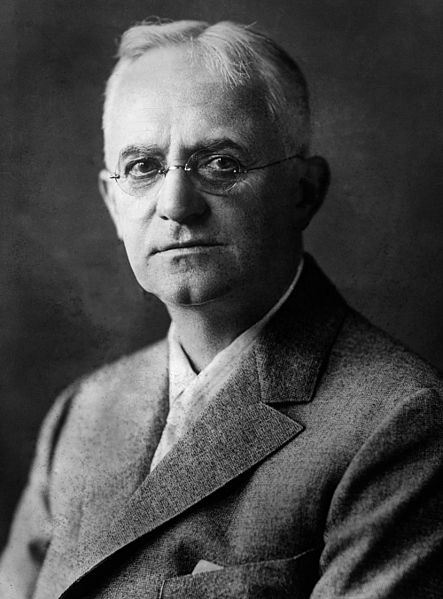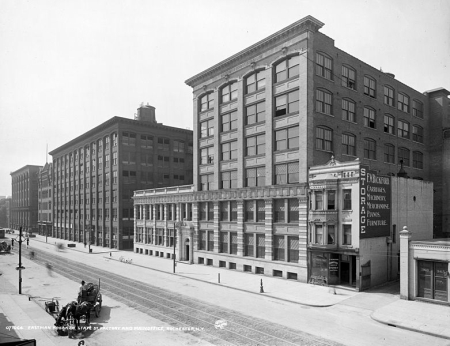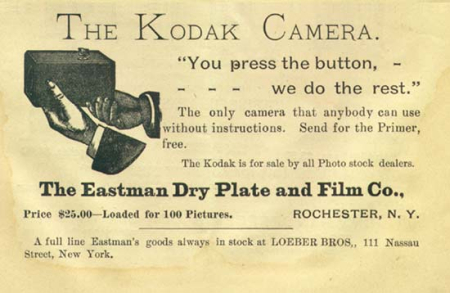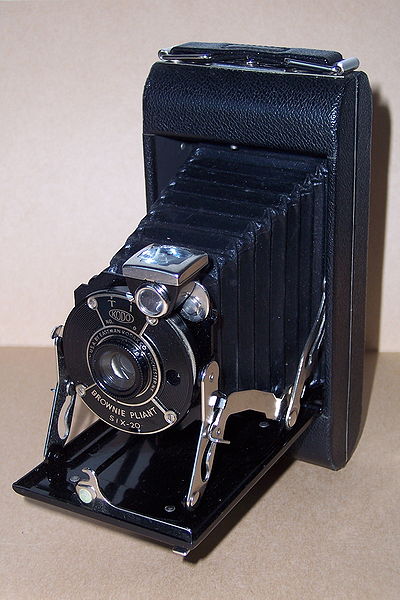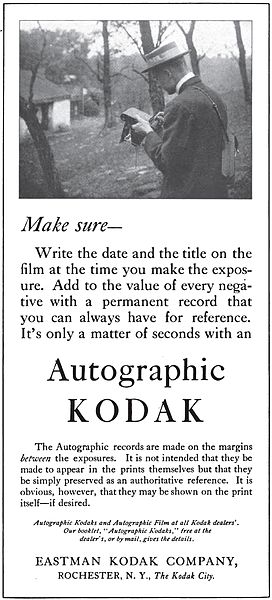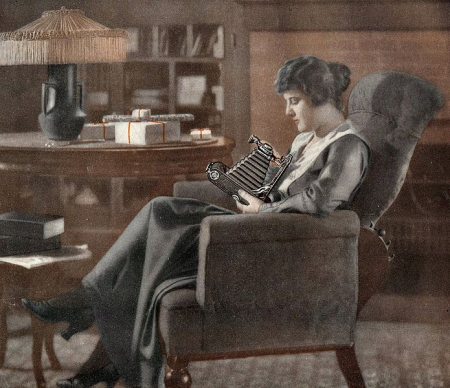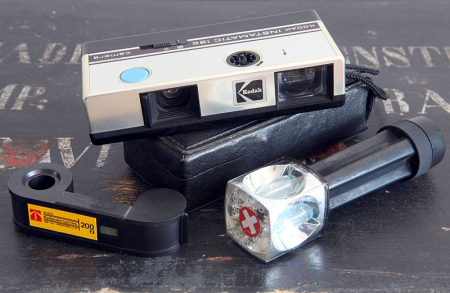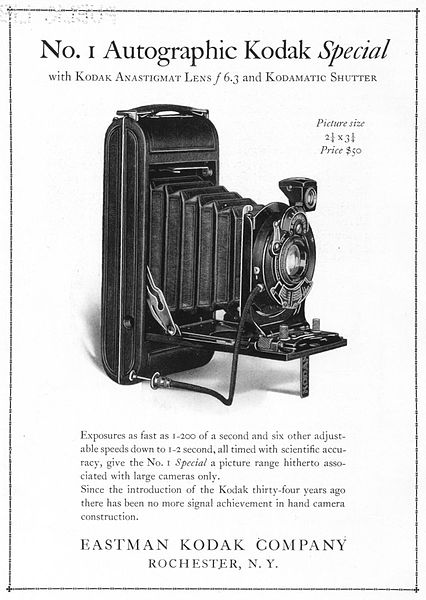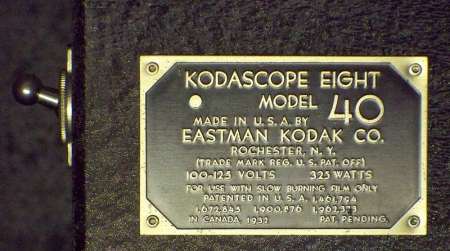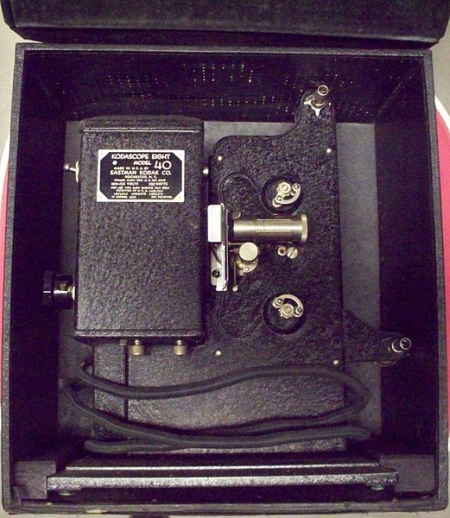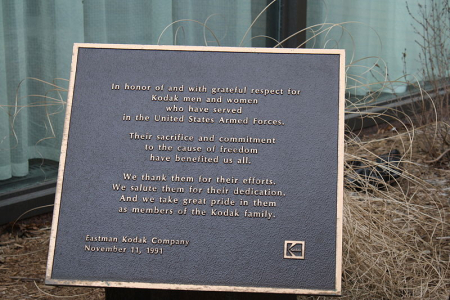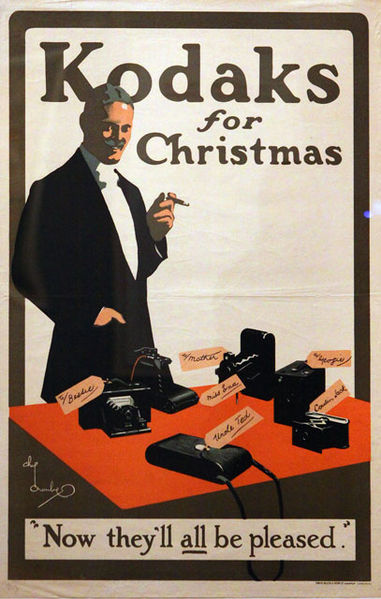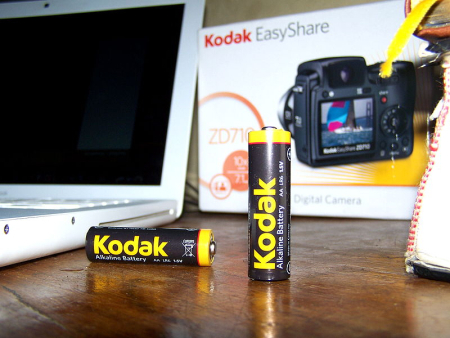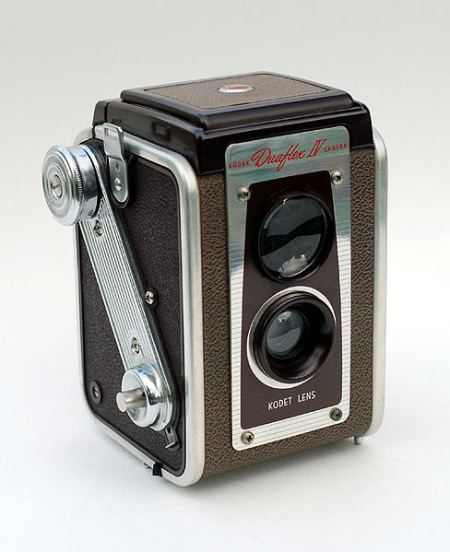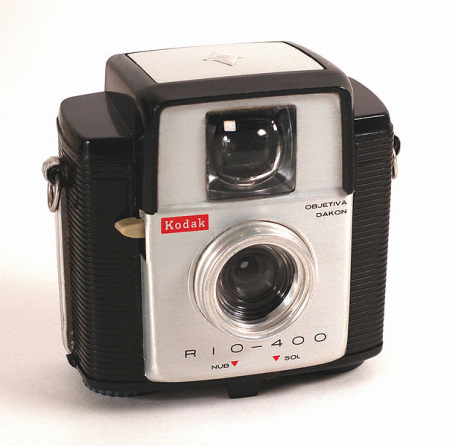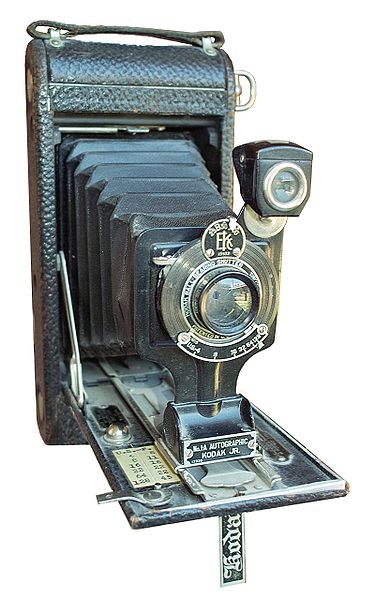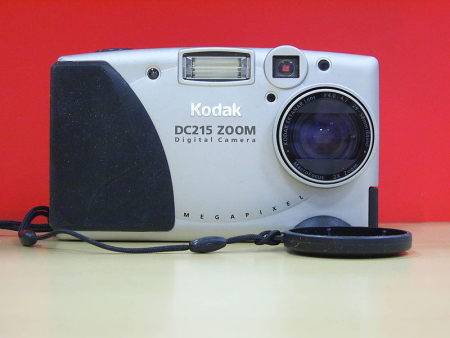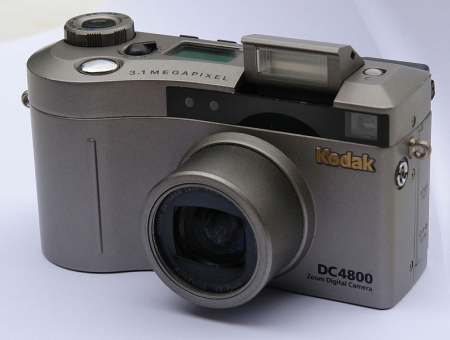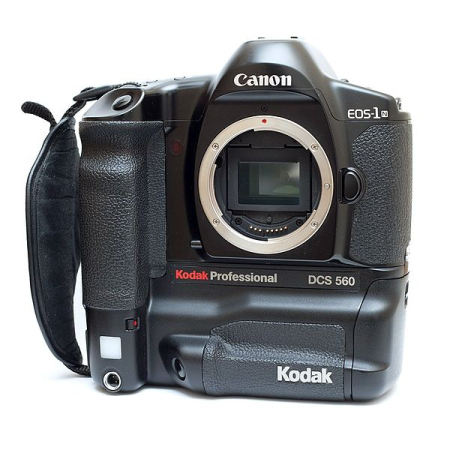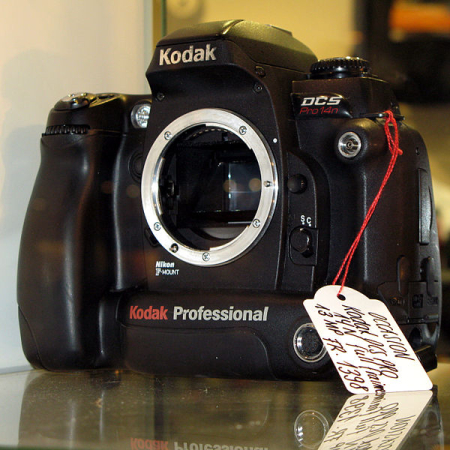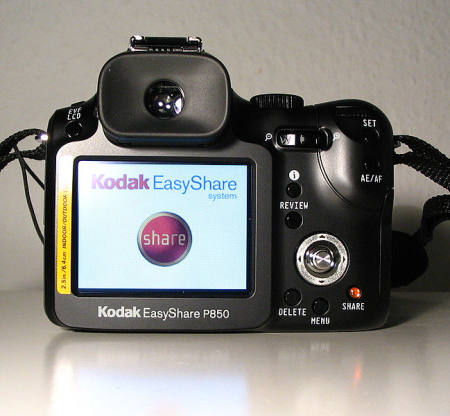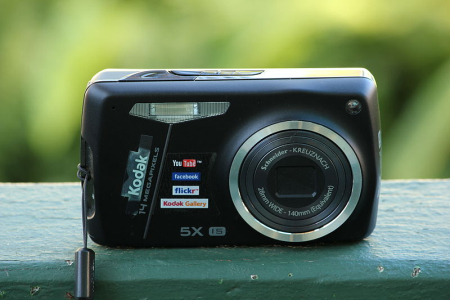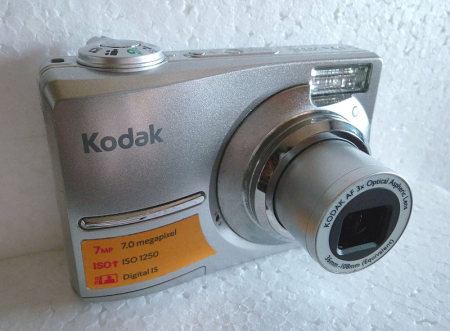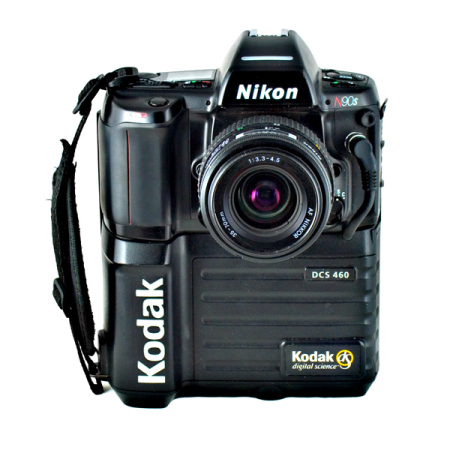 | « Back to article | Print this article |
Iconic photos trace amazing history of Kodak
One of American's biggest companies, Eastman Kodak, which invented the hand-held camera, has filed for bankruptcy protection.
The 130-year-old company with 1,100 digital patents, has received a $950 million, 18-month credit facility from Citigroup for a revival.
"The board of directors and the entire senior management team unanimously believe that this is a necessary step and the right thing to do for the future of Kodak," Chairman and Chief Executive Antonio M Perez said in a statement.
With the company filing for bankruptcy, we showcase here the history of Kodak through photos.
Click NEXT to see some iconic photos...
Iconic photos trace amazing history of Kodak
Eastman Kodak Company is a multinational imaging and photographic equipment, materials and services company headquartered in Rochester, New York, and incorporated in New Jersey.
It was founded by George Eastman in 1892.
Click NEXT to read more...
Iconic photos trace amazing history of Kodak
Kodak has long been known for its wide range of photographic film products. During most of the 20th century Kodak held a dominant position in photographic film, and in 1976 had a 90 per cent market share of photographic film sales in the United States.
Indeed Kodak's ubiquity was such that the phrase "Kodak Moment" entered common lexicon as a personal event that demanded to be recorded for posterity.
Click NEXT to read more...
Iconic photos trace amazing history of Kodak
Since the late 1990s, Kodak has struggled financially as a result of the decline in sales of photographic film, and 2007 was the most recent year in which the company made a profit.
As part of its turnaround strategy, Kodak has focused on digital photography and digital printing.
Click NEXT to read more...
Iconic photos trace amazing history of Kodak
The letter "K" was a favourite of Eastman's; he is quoted as saying, "it seems a strong, incisive sort of letter". He and his mother devised the name Kodak with an anagram set.
Eastman said that there were three principal concepts he used in creating the name: it should be short; one cannot mispronounce it, and it could not resemble anything or be associated with anything but Kodak.
Click NEXT to read more...
Iconic photos trace amazing history of Kodak
It has also been suggested that "Kodak" originated from the suggestion of David Houston, a fellow photographic inventor who held the patents to several roll film camera concepts that he later sold to Eastman.
Houston, who started receiving patents in 1881, was said to have chosen "Nodak" as a nickname of his home state, North Dakota (NoDak).
This is contested by other historians, however, who cite that Kodak was trademarked prior to Eastman buying Houston's patents.
Click NEXT to read more...
Iconic photos trace amazing history of Kodak
From the company's founding by George Eastman in 1880, Kodak had followed the razor-blade strategy of selling inexpensive cameras and making large margins from consumables - film, chemicals and paper.
Click NEXT to read more...
Iconic photos trace amazing history of Kodak
As late as 1976, Kodak commanded 90 per cent of film sales and 85 per cent of camera sales in the US, according to a 2005 case study for Harvard Business School.
However this seemingly unassailable competitive positions fostered Kodak's unimaginative executive culture.
Click NEXT to read more...
Iconic photos trace amazing history of Kodak
Japanese competitor Fujifilm entered the US market (via Fuji Photo Film USA) with lower-priced film and supplies, but Kodak refused to believe that American consumers would ever desert its sacred brand.
Click NEXT to read more...
Iconic photos trace amazing history of Kodak
Kodak passed on the opportunity to become the official film of the 1984 Los Angeles Olympics; Fuji won these sponsorship rights, which gave them a permanent foothold in the marketplace.
Fuji opened up a film plant in the US and its aggressive marketing and price cutting began taking market share from Kodak.
Click NEXT to read more...
Iconic photos trace amazing history of Kodak
Fuji went from a 10 per cent share in the early 1990s and from 1993-1997 that grew to 17 per cent.
Meanwhile, Kodak had made little headway in Japan, the second-largest market for photo film and paper after the United States.
Click NEXT to read more...
Iconic photos trace amazing history of Kodak
In May 1995, Kodak filed a petition with the World Trade Organization under section 301 arguing that its poor performance in the Japanese market was a direct result of unfair practices adopted by Fuji.
Click NEXT to read more...
Iconic photos trace amazing history of Kodak
However on January 30, 1998, the WTO announced a "sweeping rejection of Kodak's complaints" about the film market in Japan.
Kodak's financial results for the year ending December 1997 showed that company's revenues had come down from $15.97 billion in 1996 to $14.36 billion in 1997, a fall of more than 10 per cent of their net earnings went from $1.29 billion to just $5 million for the same period.
Click NEXT to read more...
Iconic photos trace amazing history of Kodak
However, the most worrying factor was that Kodak's market share had plunged from 80.1 per cent to 74.7 per cent in the United States, a one year drop of five percentage points that had observers suggesting that Kodak was slow to react to changes and had underestimated its rivals.
Click NEXT to read more...
Iconic photos trace amazing history of Kodak
In the 1990s, Kodak had planned a decade-long journey to move to digital technology. CEO George MC Fisher reached out to Microsoft and other new consumer merchandisers.
Click NEXT to read more...
Iconic photos trace amazing history of Kodak
Apple's pioneering QuickTake consumer digital cameras, introduced in 1994, had the Apple label but they were actually produced by Kodak.
Overall, though, there was little implementation of the new digital strategy.
Click NEXT to read more...
Iconic photos trace amazing history of Kodak
Kodak's core business faced no pressure from competing technologies, and as Kodak executives could not fathom a world without traditional film there was little incentive to deviate from that course.
Click NEXT to read more...
Iconic photos trace amazing history of Kodak
However in 2001 film sales dropped, and even then insiders initially attributed the financial shocks to the September 11 attacks, hoping that Kodak might be able to slow the shift to digital through aggressive marketing.
Click NEXT to read more...
Iconic photos trace amazing history of Kodak
Under Fisher's successor as CEO, Daniel Carp, Kodak made its move in the digital camera market, with its EasyShare family of digital cameras. Kodak spent tremendous resources studying customer behaviour, finding out that women in particular loved taking digital photos but were frustrated in moving them to their computers.
Click NEXT to read more...
Iconic photos trace amazing history of Kodak
This key unmet consumer need became a major opportunity. Once Kodak got its product development machine started, it released model after model offering consumers top-quality cameras at reasonable prices that made it easy to share photos with friends and family members via their PCs.
Click NEXT to read more...
Iconic photos trace amazing history of Kodak
One of their key innovations was a printer dock, where consumers could insert their cameras into this compact device, press a button, and watch their photos roll out.
By 2005, Kodak ranked No 1 in the US in digital camera sales, which surged 40 per cent to to $5.7 billion.
Click NEXT to read more...
Iconic photos trace amazing history of Kodak
However despite high growth, Kodak failed to anticipate how fast these digital cameras would become commodities, with low profit margins, as more companies entered the market in the mid-2000s.
Click NEXT to read more...
Iconic photos trace amazing history of Kodak
Also, an ever-smaller percentage of digital pictures were being taken on digital cameras, being gradually displaced in the late 2000s by cellphones and tablets' cameras.
In 2001 Kodak held the No 2 spot in US digital camera sales behind number one Sony, but Kodak lost $60 on every camera sold.
Click NEXT to read more...
Iconic photos trace amazing history of Kodak
The film business, where Kodak had enjoyed high profit margins, fell 18 per cent in 2005. The combination of these two factors resulted in disappointing profits overall.
Kodak's digital cameras soon became undercut by Asian competitors that could produce their offerings more cheaply.
Click NEXT to read more...
Iconic photos trace amazing history of Kodak
In 2007, Kodak was No 4 in US digital camera sales with a 9.6 per cent share but it has lost ground since then, and by 2010 it held seventh per cent in seventh place behind Canon, Sony, Nikon and others, according to research firm IDC.
Click NEXT to read more...
Iconic photos trace amazing history of Kodak
Kodak then began a new strategy shift. Previously Kodak had done everything in-house, but CEO Antonio Perez shut down film factories, and eliminated 27,000 jobs as it outsourced its manufacturing.
Click NEXT to read more...
Iconic photos trace amazing history of Kodak
Perez invested heavily in digital technologies and new services which capitalize on its technology innovation to boost profit margins.
He also spent hundreds of millions of dollars to built up a high-margin ink business to replace shriveling film sales, and as of 2011, these new lines of inkjet printers were said to be on verge of turning a profit.
Click NEXT to read more...
Iconic photos trace amazing history of Kodak
Home photo printers, high-speed commercial inkjet presses, workflow software and packaging are viewed as the company's new core businesses, with sales from those four businesses projected to double to nearly $2 billion in revenue in 2013 and account for 25 per cent of all sales.
Click NEXT to read more...
Iconic photos trace amazing history of Kodak
However in 2011, despite the turnaround progress, Kodak has been burning though its cash reserves rapidly which has stoked fears of bankruptcy; it had $957 million in cash in June, down from $1.6 billion in January.
Click NEXT to read more...
Iconic photos trace amazing history of Kodak
Kodak has also turned to aggressive patent litigation in order to generate revenue. In 2010, it received $838 million from patent licensing, which included a settlement it with LG.
In 2011, Kodak has reportedly explored selling off or licensing its vast portfolio of patents in order to stave off bankruptcy.

